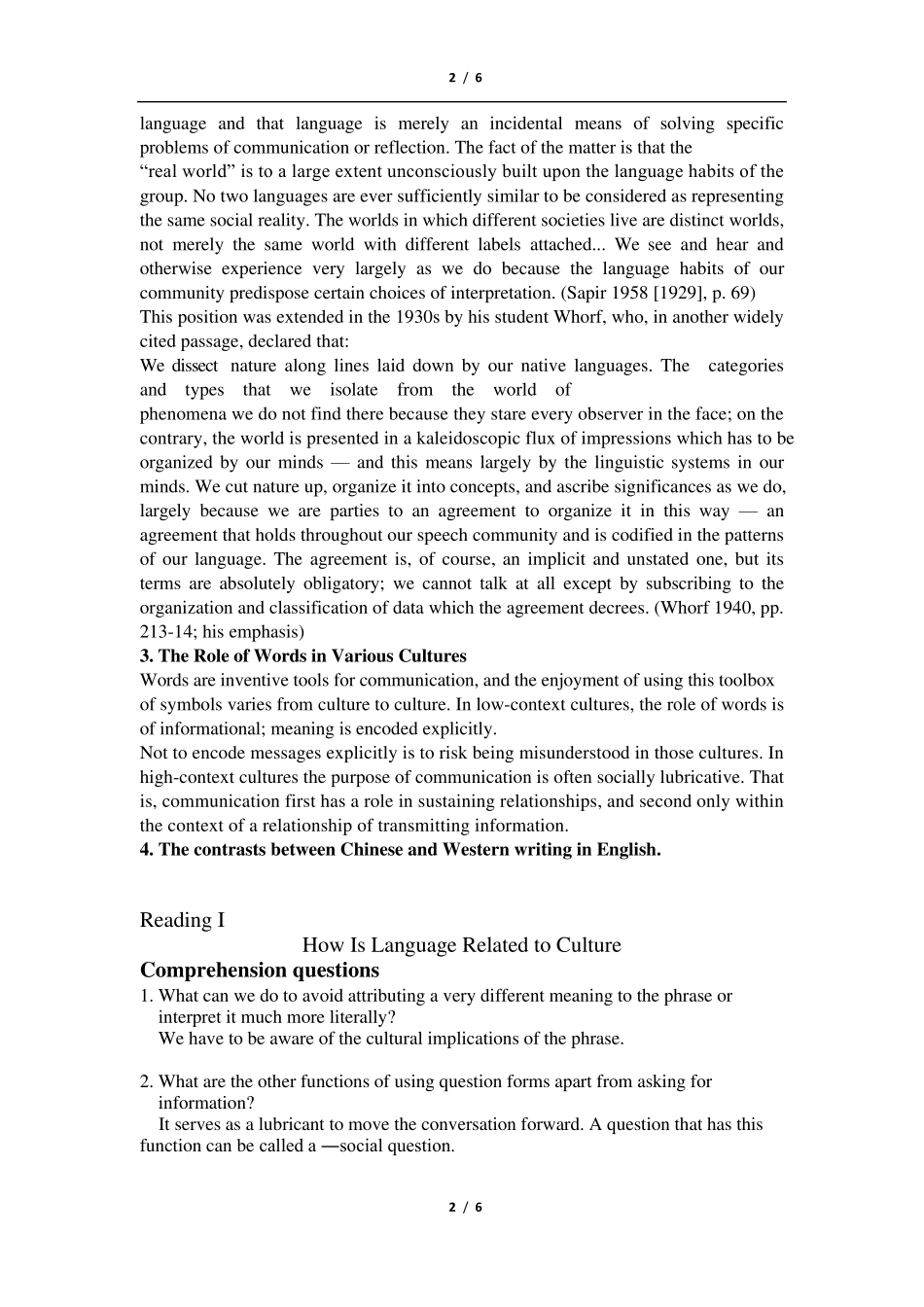1 / 6 1 / 6 Unit 4 Language and Culture Some Ideas Related to language and culture 1. Interrelationship between culture and language Each culture has its own peculiarities and throws special influence on the language system. For example, referring to the same common domestic animal, English chooses the word “dog”, while Chinese has its own character “狗”; Chinese has the phrase “走狗” while English has the expression “running dog”, but the meanings attributed to the two expressions are completely different according to Chinese culture and Western culture respectively. To Westerners, “running dog” has a positive meaning since the word “dog”, in most cases, is associated with an image of an animal pet-the favorite friend, thus they have the phrases “lucky dog” (幸运儿), “top dog” (胜利者), “old dog” (老手), “gay dog” (快乐的人), and it is usually used to describe everyday life and behavior, as in “Love me, love my dog” (爱屋及乌),“Every dog has its day” (凡人皆有得意日). But in Chinese “走狗” refers to a lackey, an obsequious person. Since Chinese associates derogatory meaning to the character “狗” depending on the cultural difference, Chinese has such expressions as “狗东西”,“狗腿子”,“狗仗人势”,“狗胆包天”,“狗嘴里吐不出象牙”,“狼心狗肺”,“痛打落水狗”,“狗急跳墙”. We can obviously see that the meaning attributed to language is cultural-specific. A great deal of cross-cultural misunderstanding occurs when the “meanings” of words in two languages are assumed to be the same, but actually reflect different cultural patterns. Some are humorous as when a Turkish visitor to the U.S. refused to eat a hot dog because it was against his beliefs to eat dog meat. Some are muc...


